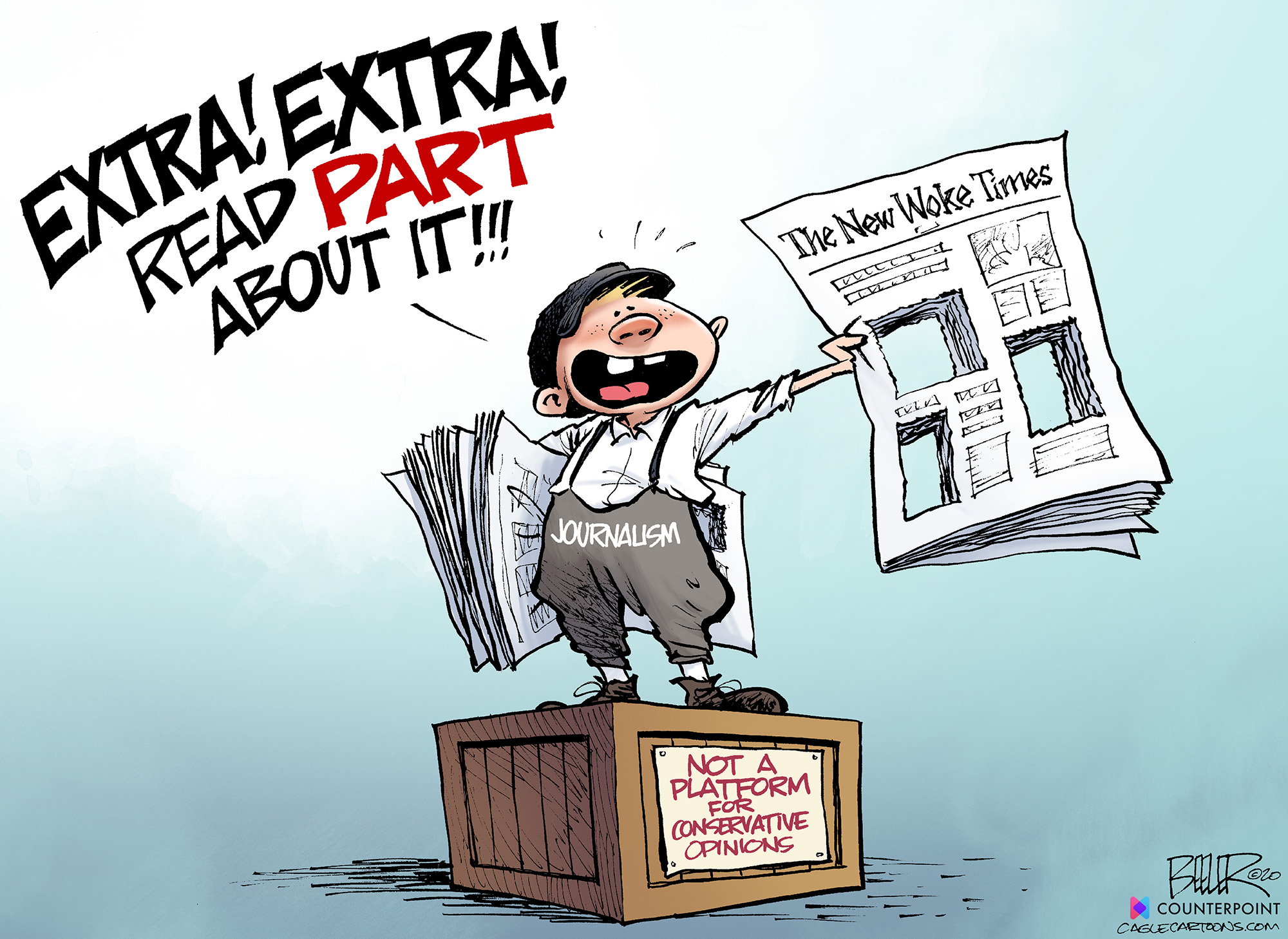
What’s News? It Depends On Who You Ask
– By Rich Manieri –
I need someone to tell me what’s happening. Not a tinted version of events but what’s really happening. I make the request because mainstream (if there is such a thing) news outlets seem to fundamentally disagree about what’s important.
On Sunday morning, the top story on the Fox News website, complete with video, was rioting in west coast cities on the anniversary of Breonna Taylor’s death – a dozen or so arrests, vandalism, clashes with police. Sounded like a pretty big deal.
In the interest of balance (if there is such a thing) I went to CNN’s website. No mention of the riots.
As I write this, CNN’s top story is “Russia targeted U.S. elections in 2020.” This story is “breaking news” so it must be important. The subhead reads “An intelligence report identifies Russian efforts aimed at denigrating Biden and helping Trump.” The story is based on a U.S. intelligence report that also indicates “Iran carried out a multi-pronged covert influence campaign intended to undercut former President Trump’s reelection prospects.”
Back to the Fox News website. Crickets on the election story.
You can see the problem.
We have two, U.S.-based, international news organizations that appear to be operating in their own alternate universes.
Surely, news organizations, covering the same country, should at least be able to agree on the big stories. We expect some variety among the clickbait, the snouts and entrails of news websites – the “Look who’s drunk” and “Pop star wears Kleenex to Grammy’s” stories. But I’d like to believe there should be agreement on major issues.
The easy explanation is that each outlet (and this discussion is not confined to Fox and CNN, they just happen to be easy targets) is driving its own agenda. But there’s a more complicated discussion to be had regarding why the media has abdicated its responsibility to seek truth, opting instead to advance its own subjective version of reality.
Stories that run afoul of political orthodoxies aren’t reported because they don’t exist. Moreover, there’s really no interest in seeking balance on certain hot-button issues – abortion, immigration, gun control or pick another – because there is only one side worthy of representation. Thus, a big story for one news outlet isn’t even worthy of a mention for another. “Big” and “important” are no longer synonymous for “far-reaching” or “impactful.” Ideology is now the metric by which we measure importance.
There are some stories whose mere coverage transcends editorial judgement – natural disasters, elections, wars. Such events are covered because they have to be. There’s no decision to made, for example, as to whether we should cover presidential campaigns. How they’re covered and what’s reported is a different issue.
It’s not as if no one else has noticed. A recent poll by the Knight Foundation found that “Sixty-eight percent of Americans say they see too much bias in the reporting of news that is supposed to be objective as ‘a major problem.’”
Socially media exacerbates the problem, of course, especially when Facebook and Twitter now see themselves as independent arbiters of truth, allowing them to advance narratives they deem acceptable while extinguishing others. But Facebook and Twitter are not news organizations in and of themselves. There are not Facebook or Twitter reporters. Ground zero for journalistic malpractice is the newsroom, where editorial decisions are made.
It’s no mystery why young people often can’t distinguish between opinion and news reporting, two things that Walter Cronkite once said should have has much daylight between them “as the Bible and Playboy magazine.” A bit crass, maybe, but correct.
I deal with students everyday who will submit what they think is a news story which, in reality, is nothing more than an opinion column. Why? Because what’s being marketing by news outlets and what’s being consumed is often an amalgam of news, commentary, analysis and predetermined narrative. Is it any wonder an 18-year-old doesn’t know the difference?
You would think that with approval ratings only slightly north of the local parking authority, news organizations would feel some sense of urgency to restore order.
There are still excellent journalists doing wonderful work in news outlets throughout the country – from community newspapers to TV networks. But if the pendulum is ever going to swing back to objectivity, it’s going to need a push from those who really value truth.
It will take some hard work and self-awareness for news organizations to admit that we’re doing this wrong. On the other hand, it will take almost no effort to stay the course, cater to biases and tell us only what you think we should hear.
–
Copyright 2021 Rich Manieri, distributed by Cagle Cartoons newspaper syndicate. Rich Manieri is a Philadelphia-born journalist and author. He is currently a professor of journalism at Asbury University in Kentucky.
Viewpoints and perspectives expressed throughout The Independent are those of the individual contributors. They do not necessarily reflect those held by the staff of The Independent or our advertising sponsors. Your comments, rebuttals, and contributions are welcome in accordance with our Terms of Service. Please be respectful and abide by our Community Rules. If you have privacy concerns you can view our Privacy Policy here. Thank you!
Click here to submit an article, guest opinion piece, or a Letter to the Editor




